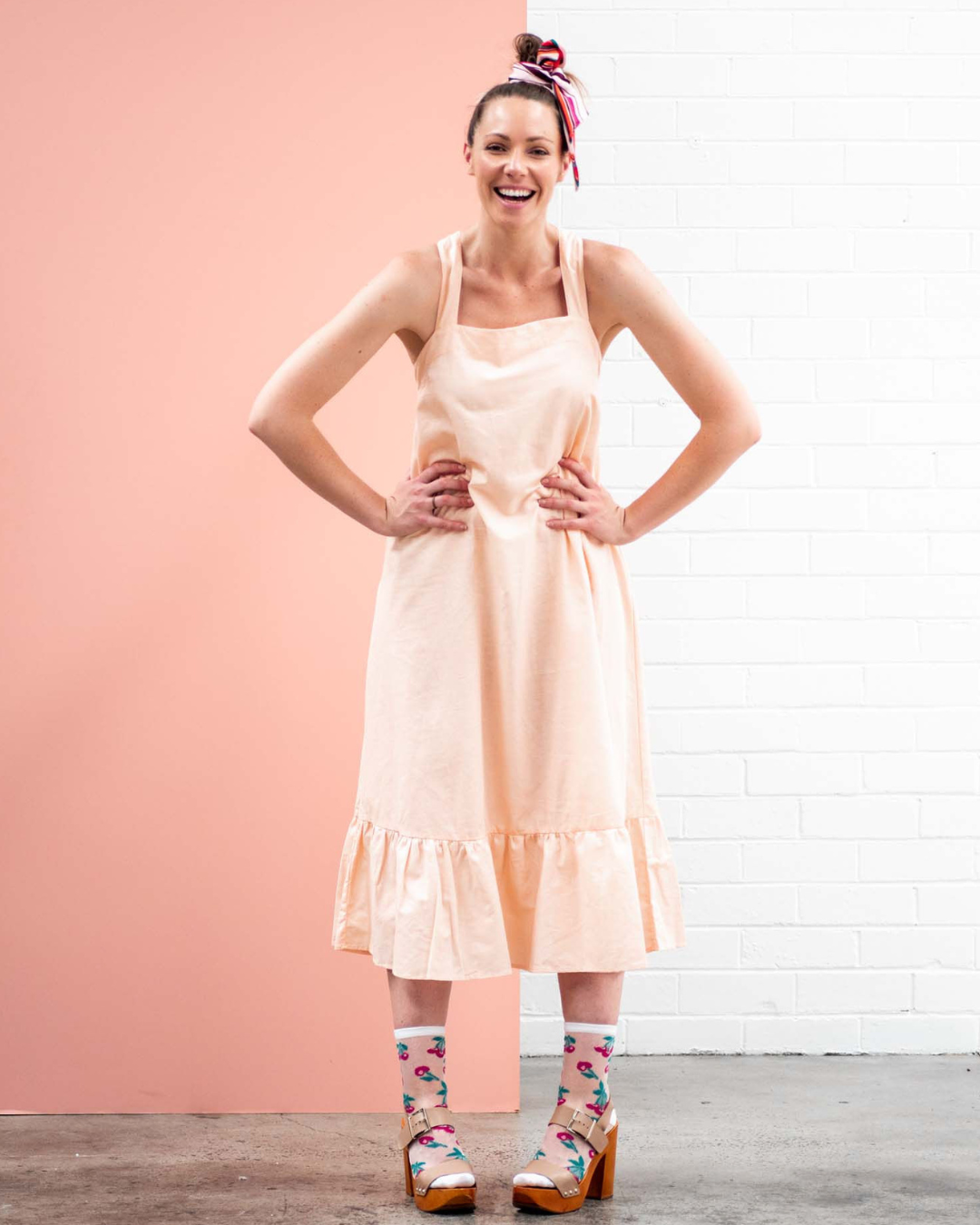If you run an ethical, sustainable, circular, or slow fashion label, you've landed here for a good reason. The Fashion Advocate is the slow fashion ‘business bible’ you’ve been searching for, filled with strategies and solutions to help you change the world with your fashion business while increasing your impact and sales.
If we’re going to create positive change, we need to share wisdom and strategies to support one another through open, honest, and authentic conversations. That’s exactly what my Instagram LIVE TFA TALKS are all about.
I speak with inspiring individuals doing incredible things in the slow fashion industry and we discuss everything from fashion and business to sustainability, growth strategies, and sales - the good, the bad, the ugly. We cover the topics everyone’s talking about and the ones that need more attention. If it’s happening in the fashion and business world, I cover it in my TFA TALKS.
And today's Instagram LIVE TFA TALKS session with Ethical Clothing Australia National Manager, Rachel Reilly, was an eye-opening conversation on the manufacturing industry in Australia. Rachel is a passionate human rights, labour rights and women's rights advocate with nearly two decades of experience in the not-for-profit sector, and she cares deeply about the makers behind our clothes.
You can watch the full interview on Instagram here or catch up on the three key takeaways from our conversation below...
1. Ethical fashion can be complicated; a moral compass simplifies it.
If you're new to ethical fashion, I’m not going to lie and say it’s an easy book to read, but there’s definitely a step-by-step pathway to a better understanding of it. Rachel agrees, and she simplifies it beautifully: it’s about morals at the end of the day. The moral and just approach to fashion takes into account the hands that bring it to life - and those workers deserve the same rights consumers expect. Ethical fashion is simply about doing the right and moral thing.
2. Surprise, modern slavery exists in Australia.
It's a concept many of us wouldn't consider, given the fact that Australia is a privileged country, but the unfortunate truth is that modern slavery exists here. Some outworkers (garment makers who work from home on their own equipment) are paid just $4 per piece of clothing they complete for brands, and that doesn't include superannuation, leave entitlements, or insurance... It's not ethical, it's not moral, and it definitely isn't liveable. Ethical Clothing Australia exists to air dirty laundry like this and through education, awareness, advocacy, and legislation, they're changing the industry for the better.
3. Every item of clothing is an investment.
If you're a shopper, buying ethical fashion is an investment. It might cost more, but it's worth it. It's an investment in your commitment to systemic change, and you have so much power to create change on a large scale when you shop ethically. If you're a brand, ‘ethical’ really is the only way forward for the industry - and for humanity.
Learn more about Ethical Clothing Australia via the website here or watch the full Instagram live interview here.
If you’re running an ethical, sustainable, circular, or slow fashion business, tune in to my Instagram LIVE TFA TALKS to learn more about fashion, ethics, sustainability and growth strategies that you can take away and apply to your own business to increase your sales and increase your impact.
You can also reach out to me here.
Claire x




